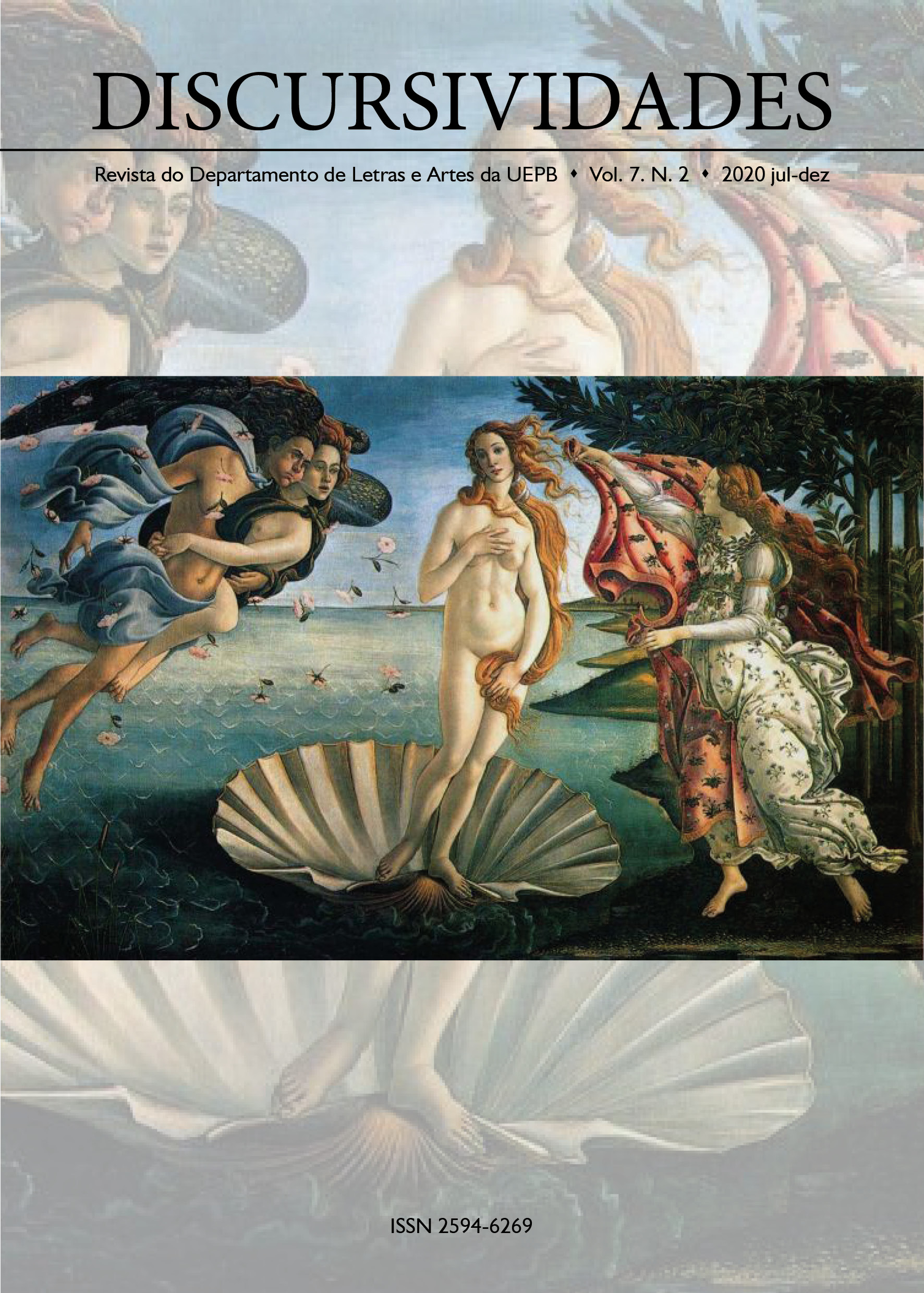The discourse of resistance of the fat body to the dictatorship of beauty
DOI:
https://doi.org/10.29327/256399.7.2-6Keywords:
Keywords: Fat body. Discourse. Resistance.Abstract
This article is about subjects resistance to the normalization of a fat body molding presented by media as the truth of the moment. As a starting point, ask yourself: which truths have been produced and portrayed in media about the fat body? And to what extent is this body a synonym of resistance, since it breaks the hegemony of the media discourse? Reflection is based on the studies about discourse (FOUCAULT, 2008, 2010, 2012) and about body as a historical and cultural construction, through which different discourses and knowledge are articulated (FISCHLER, 2005; ORTEGA, 2008; PEREIRA, 2013). A look is cast on female fat body, analyzing the emphasized discourse presented, which also conveys what is interdicted. In spite of media insistence on spreading a crystallized discourse over the skinny body socially accepted, some women, confronted with a hard demand imposed by media of being skinny and seductive, dare to show a body that, supposedly, “nobody wants to see” and transform themselves.
References
ARRAES, Jarid. Gordofobia como questão política e feminista. Revista Fórum. 2015. Disponível em: http://www.revistaforum.com.br/digital/163/gordofobia-como-questao-politica-e-feminista/ Acesso em: 20 Jun. 2021.
BAQUERO, Rute Vivian Angelo. Empoderamento: instrumento de emancipação social? Uma discussão conceitual. Revista Debates. Porto Alegre, v. 6, n. 1, p. 173-187, 2012. Disponível em: http://seer.ufrgs.br/index.php/debates/article/view/26722/17099. Acesso em: 18 Jun. 2021.
LIPOVETSKY, Gilles. A estetização do mundo: viver na era do capitalismo artista. São Paulo: Companhia das Letras, 2015.
LOURO, Guacira Lopes. Pedagogias da sexualidade. In: LOURO, Guacira Lopes (Org.). O corpo educado: pedagogias da sexualidade. 3. ed. Belo Horizonte: Autêntica, 2016, p. 07-34.
FISCHLER, Claude. Obeso benigno, obeso maligno. In: SANT’ANNA, Denise B. (Org.) Políticas do corpo: elementos para uma história das práticas corporais. 2. ed. São Paulo: Estação Liberdade, 2005, p. 69-80.
FOUCAULT, Michel. Vigiar e punir: nascimento da prisão. 40. ed. Tradução de Raquel Ramalhete. Petrópolis, RJ: Vozes, 2012.
FOUCAULT, Michel. O sujeito e o poder. In: DREYFUS, H. e RABINOW, P. Michel Foucault. Uma trajetória filosófica. 2. ed. Tradução de Vera Portocarrero e Gilda Gomes Carneiro. Rio de Janeiro: Forense Universitária, 2010, p. 273-295.
FOUCAULT, Michel. Microfísica do poder. 25. ed. Tradução de Roberto Machado. Rio de Janeiro: Graal, 2008.
GREGOLIN, Maria do R. V. (Org.) Discurso e mídia: a cultura do espetáculo. São Carlos, SP: Claraluz, 2003, p. 9-17. (Coleção Olhares Oblíquos).
GUATTARI, Felix; ROLNIK, Suely. Micropolítica: cartografias do desejo. Petrópolis, RJ: Vozes, 1996.
ORTEGA, Francisco. O corpo incerto: corporeidade, tecnologias médicas e cultura contemporânea. Rio de Janeiro: Garamond, 2008.
PEREIRA. Tânia M. A. O espetáculo de imagens na ordem do discurso midiático: o corpo em cena nas capas da revista Veja. Tese (Doutorado em Linguística). Programa de Pós-Graduação em Linguística, Universidade Federal da Paraíba, João Pessoa, 2013.
PEREIRA. Tânia M. A. O corpo gordo na ordem do discurso publicitário: efeitos do biopoder. In: SILVA, Antonio de Pádua Dias da. (Org.) Escrit@s sobre gênero e sexualidades. São Paulo: Scortecci, 2015. p. 217-229.
ROMANO, Juliana. Plus Size na ELLE Brasil de maio com gorduras e sem Photoshop. Sim! Sou eu! 2015. Disponível em https://juromano.com/moda/plus-size-na-elle-brasil-de-maio-com-gorduras-e-sem-photoshop-sim-sou-eu/ Acesso em: 20 Jun. 2021.
SANT’ANNA, Denise B. (Org.) Políticas do corpo: elementos para uma história das práticas corporais. 2. ed. São Paulo: Estação Liberdade, 2005.
Downloads
Published
How to Cite
License
Copyright (c) 2020 Tânia Maria Augusto Pereira

This work is licensed under a Creative Commons Attribution 4.0 International License.
Authors who publish in this journal agree to the following terms:
a) Authors retain copyright and grant the journal the right of first publication. The articles are simultaneously licensed under the Creative Commons Attribution 4.0 International Public License (CC BY 4.0) which allows the sharing of the work with acknowledgment of its authorship and initial publication in this journal.
b) Discursividades journal offers immediate free access to its content, following the principle that making scientific knowledge available to the public free of charge provides greater global democratization of knowledge.






